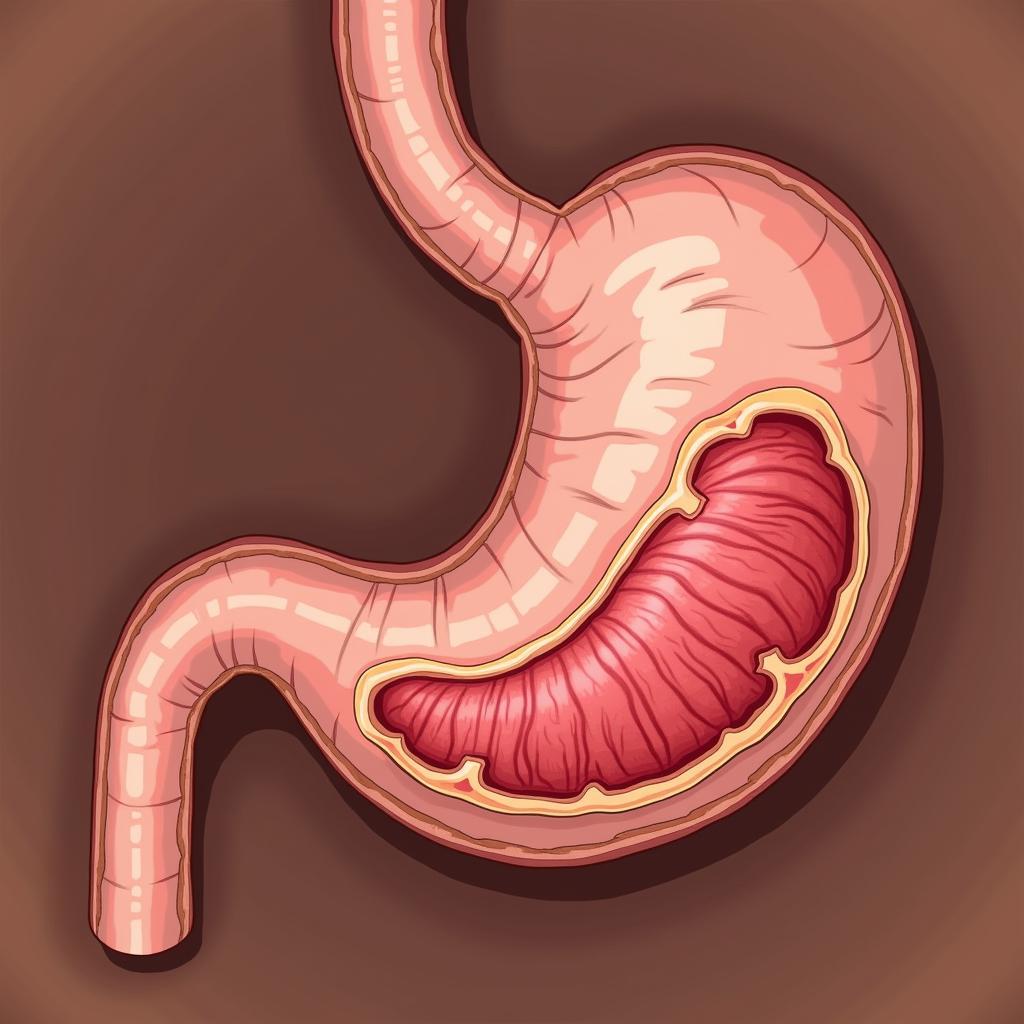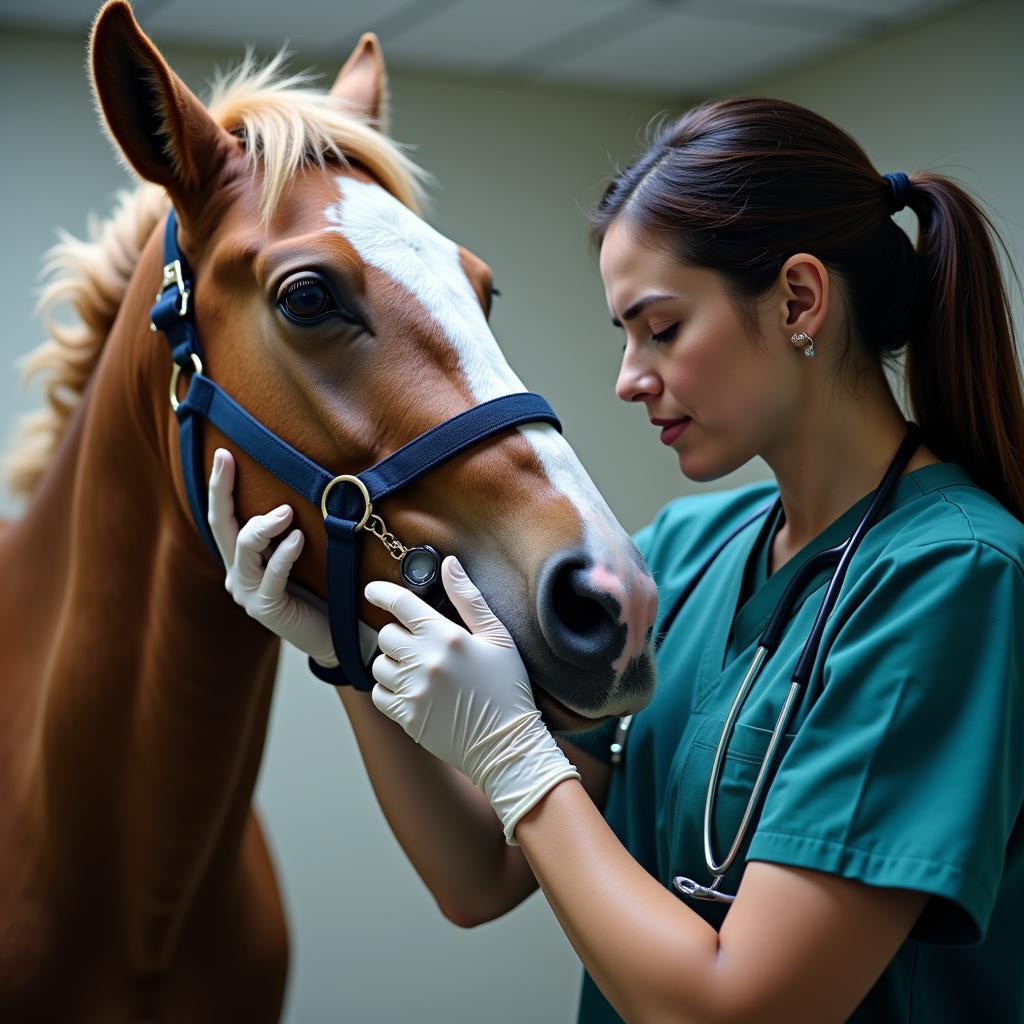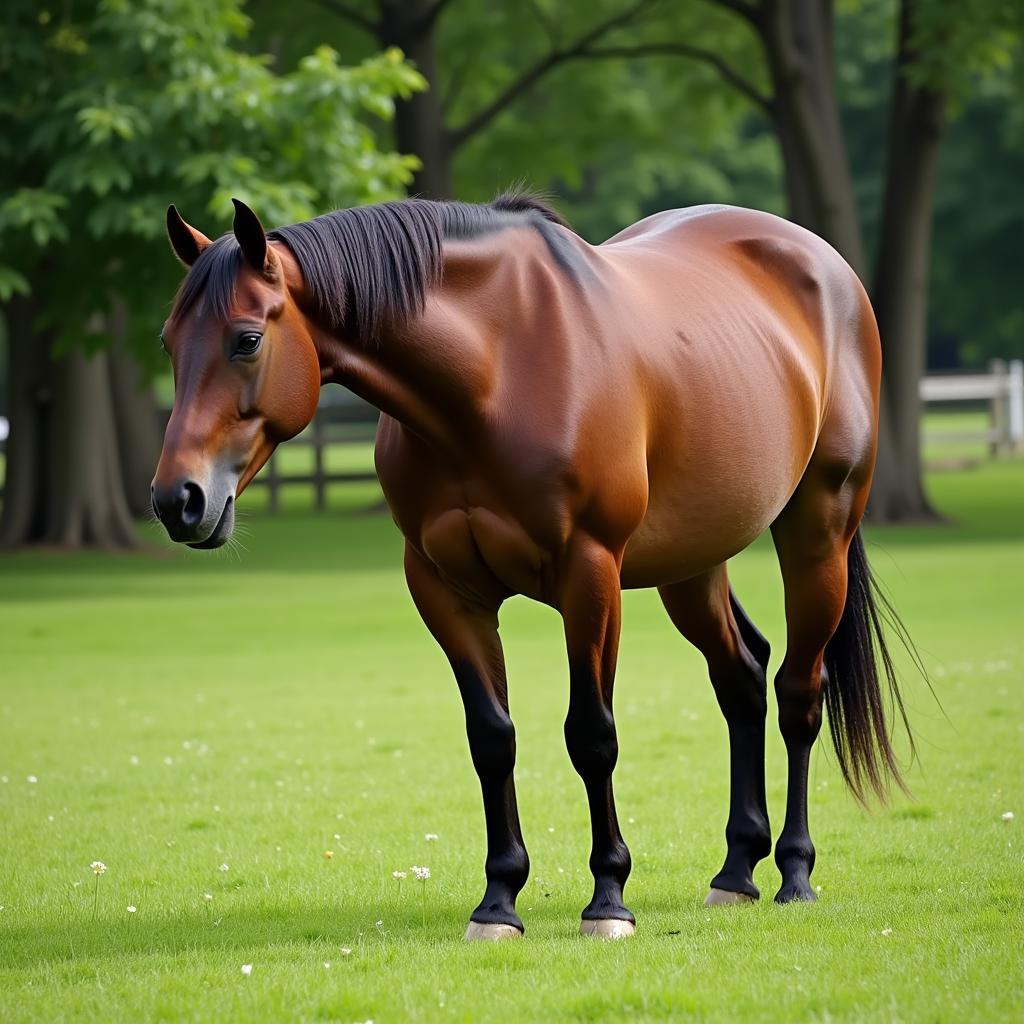Gastric ulcers, also known as Equine Gastric Ulcer Syndrome (EGUS), are a common health concern in horses, affecting their overall well-being and performance. These painful sores develop on the lining of the stomach, posing a significant health risk if left untreated.
What Causes Gastric Ulcers in Horses?
Several factors can contribute to the development of gastric ulcers in horses, often stemming from management practices and dietary imbalances:
- High-concentrate diets: Feeding horses a diet high in grains and low in forage can disrupt the delicate pH balance in their stomachs, increasing the risk of ulcer formation.
- Intense exercise: Strenuous activity can decrease blood flow to the stomach, leaving it more susceptible to damage from gastric acid.
- Stress: Transport, changes in routine, and social isolation can induce stress, leading to increased acid production and ulcer development.
- Medications: Prolonged use of non-steroidal anti-inflammatory drugs (NSAIDs), such as bute, can irritate the stomach lining and contribute to ulcer formation.
 Horse Stomach with Gastric Ulcer
Horse Stomach with Gastric Ulcer
Recognizing the Signs of Gastric Ulcers in Horses
Horses suffering from gastric ulcers may exhibit a variety of symptoms, often subtle and easily mistaken for other conditions:
- Poor appetite or weight loss: Ulcers can cause discomfort while eating, leading to reduced feed intake.
- Dull coat and lethargy: Nutrient absorption issues caused by ulcers can result in a dull coat and lack of energy.
- Behavioral changes: Irritability, aggression, and a reluctance to train can indicate underlying pain and discomfort.
- Colic symptoms: In severe cases, gastric ulcers can lead to colic, characterized by pawing, rolling, and abdominal pain.
Diagnosing Gastric Ulcers
Veterinarians utilize a specialized procedure called gastroscopy to definitively diagnose gastric ulcers in horses. This involves passing a flexible endoscope with a camera attached through the horse’s nostril and down into the stomach, allowing for visual inspection of the stomach lining.
 Veterinarian Conducting Gastroscopy on a Horse
Veterinarian Conducting Gastroscopy on a Horse
Treating and Preventing Gastric Ulcers
Treating gastric ulcers effectively involves a multi-faceted approach:
- Medications: Veterinarians commonly prescribe omeprazole, a proton pump inhibitor, to reduce stomach acid production and promote healing.
- Dietary changes: Switching to a low-starch, high-fiber diet that includes alfalfa hay can help buffer stomach acid and support ulcer healing.
- Stress management: Minimizing stress through consistent routines, ample turnout time, and companionship can significantly reduce the risk of ulcer recurrence.
“Prevention is key when it comes to gastric ulcers,” advises Dr. Emily Carter, a renowned equine veterinarian. “Implementing management strategies that prioritize digestive health, such as slow feeder systems and stress reduction techniques, is crucial for maintaining a healthy stomach environment.”
 Healthy Horse Grazing on Pasture
Healthy Horse Grazing on Pasture
Conclusion
Gastric ulcers are a common yet preventable health issue in horses. By understanding the causes, recognizing the signs, and implementing appropriate management and treatment strategies, horse owners can play a vital role in safeguarding their equine companions from the discomfort and health risks associated with this condition.
For personalized guidance on managing gastric ulcers in your horse, don’t hesitate to contact Justus Horses USA at 0772127271, email us at [email protected], or visit our facility located at QGM2+WX2, Vị Trung, Vị Thuỷ, Hậu Giang, Việt Nam. Our dedicated team of equine experts is available 24/7 to address your concerns and provide tailored solutions for your horse’s well-being.